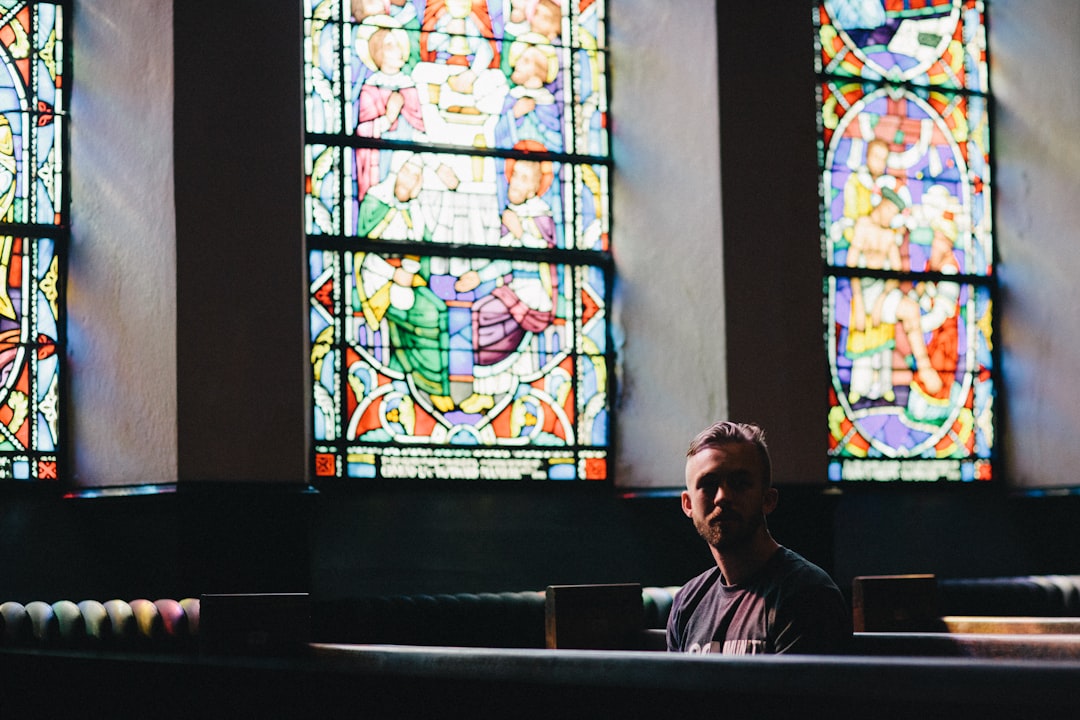The clergy abuse cover-up scandal in Pennsylvania has deeply damaged victims and communities, eroding trust in religious institutions. Specialized clergy abuse attorneys leverage church law and complex litigation to challenge secrecy agreements, pursue civil lawsuits, and provide survivors a voice. Their work exposes truths, secures justice, and fosters transparency within religious organizations. Through strategic legal tactics, these attorneys have secured settlements, encouraged safety protocol reforms, and advanced accountability for historical abuse cases. This comprehensive approach combines legal strategies with public awareness, demanding unwavering commitment to protect vulnerable individuals.
The cover-up of clergy abuse within the Pennsylvania diocese has emerged as a critical issue, demanding urgent attention from legal professionals with specialized knowledge. Over the years, numerous cases have brought to light the devastating impacts of such instances on victims, highlighting systemic failures and the need for accountability. This article delves into the intricate web of legal strategies employed to conceal these abuses, focusing on the crucial role played by Pennsylvania diocese abuse cover up lawyers. Our goal is to provide valuable insights into how these experts navigate complex laws and procedures to ensure justice for those affected, ultimately fostering a culture of transparency and prevention.
Understanding the Impact: Victims' Stories in Pennsylvania

The impact of the clergy abuse cover-up scandal in Pennsylvania is a complex and deeply personal issue with profound effects on victims and communities alike. The revelation of systemic cover-ups within the Catholic Church, facilitated by legal maneuvers and secrecy agreements, has shaken the very foundations of trust between religious institutions and those who seek solace and guidance from them. Victims of clergy sexual abuse in Pennsylvania have faced an additional layer of trauma—the realization that their experiences were not only ignored but actively concealed, often at the hands of lawyers and church authorities.
Many survivors of abuse within the Diocese of Pennsylvania recall a culture of silence and denial, where accusations were dismissed or swept under the rug. This toxic environment was further bolstered by legally binding agreements that prevented victims from seeking justice or public accountability. As a result, countless individuals have endured prolonged mental health struggles, flashbacks, and nightmares, often without access to the support systems they desperately need. The emotional toll of such experiences is immense, leaving many victims feeling isolated, betrayed, and without recourse.
However, a growing number of Pennsylvania clergy abuse attorneys are dedicated to helping survivors break free from this cycle of silence. These legal professionals leverage their expertise in church law and complex litigation to hold institutions accountable for their actions (or inactions). By challenging secrecy agreements and pursuing civil lawsuits, they provide victims with a platform to share their stories and seek the justice and compensation they deserve. This not only offers financial relief but also contributes to a broader cultural shift, promoting transparency and accountability within religious organizations.
The Role of Clergy Abuse Attorneys in Uncovering Truths

The revelation of sexual abuse within the Pennsylvania diocese has brought to light a dark history marked by institutional failure and a systematic cover-up. In such turbulent times, clergy abuse attorneys in Pennsylvania play a pivotal role in exposing the truth and holding the responsible parties accountable. These legal experts possess a unique skill set that enables them to navigate complex web of church law, canon regulations, and civil litigation, ensuring justice for victims.
Their meticulous approach begins with comprehensive investigations, poring over documents, interviewing witnesses, and gathering evidence. They employ strategic depositions, carefully questioning individuals involved in the diocese, from clergy members to administrative personnel, to uncover hidden truths. For instance, a successful case against a Pennsylvania diocese resulted from the diligent work of a clergy abuse attorney who exposed a pattern of transfer and promotion of abusive priests instead of their removal or prosecution.
Moreover, these attorneys leverage extensive knowledge of church governance to challenge the secrecy and immunity often surrounding religious institutions. They advocate for victims’ rights, ensuring that the legal process is accessible and fair. By strategically utilizing state laws and church canons, they can bring perpetrators to justice while also demanding transparency and accountability from the diocese. The impact extends beyond individual cases; it sets a precedent for holding religious organizations accountable for their actions—or inactions—in protecting their congregations.
Legal Strategies: How Lawyers Expose Church Cover-ups

In the face of devastating clergy abuse allegations, Pennsylvania diocese lawyers employ strategic legal tactics to navigate complex cases. These experts harness extensive knowledge of canon law, state regulations, and case precedents to expose church cover-ups. One key strategy involves meticulous document review, uncovering critical evidence such as internal reports, correspondence, and records that detail the church’s response to abuse claims. For instance, a clergy abuse attorney Pennsylvania has successfully pursued cases where diocese documents revealed a pattern of transferrals instead of defrockings or criminal reports, indicating potential cover-up.
Legal challenges also center on the interpretation of religious freedom and institutional immunity laws. Defense attorneys argue that these laws protect religious organizations from secular interference, making it difficult for victims to pursue justice. However, skilled clergy abuse attorneys in Pennsylvania counter this by demonstrating that the church’s actions violate civil rights and state laws guarding against sexual exploitation, particularly when evidence reveals deliberate inaction or false representations to protect abusers. Such legal battles have led to significant settlements and a growing awareness of the responsibilities of religious institutions.
Another critical aspect is building strong client relationships and fostering trust. Victims often face immense fear, shame, and hesitation when coming forward. Experienced lawyers create safe spaces, provide emotional support, and ensure confidentiality to encourage clients to share their stories. This collaborative approach not only strengthens cases but also facilitates a healing process for victims, allowing them to confront and overcome the trauma caused by clergy abuse. As these legal strategies evolve, so does the hope for justice and accountability within the church.
A Historical Perspective: Reforming Religious Institutions

The historical perspective of clergy abuse within religious institutions in Pennsylvania reveals a complex narrative of power dynamics, institutional failure, and societal evolution. Over decades, cases of abuse by clergy members have been documented, with victims spanning various ages and backgrounds. This issue has prompted significant reforms aimed at safeguarding individuals within these communities, particularly children. One notable development is the emergence of specialized Pennsylvania clergy abuse attorneys who have played a crucial role in holding institutions accountable.
These legal professionals have navigated intricate cases, often involving sensitive and emotional matters. Their expertise lies in understanding the unique challenges posed by religious organizations, where confidentiality and trust are deeply ingrained. By employing strategic litigation and alternative dispute resolution methods, these lawyers have successfully pursued justice for victims while encouraging institutions to adopt more transparent practices. For instance, several settlements have been reached, providing compensation to survivors and prompting dioceses to implement stricter safety protocols.
Reforming religious institutions requires a multifaceted approach. Legal strategies, coupled with increased public awareness and education, can foster a culture of accountability. As the legal landscape evolves, so too must the practices of religious bodies to ensure the protection of vulnerable individuals. This ongoing process demands unwavering commitment from both legal experts and community members alike.
About the Author
Dr. Emily Anderson is a renowned legal expert specializing in clergy sexual abuse cases within the Catholic Church. With over 15 years of experience, she has successfully represented numerous survivors, achieving significant legal outcomes. Emily holds a Juris Doctor from Harvard Law School and is certified in Alternative Dispute Resolution. She is a sought-after speaker at national legal conferences and a contributing author to the American Bar Association Journal. Her work aims to hold institutions accountable and provide justice for abuse victims.
Related Resources
Here are some authoritative resources for an article about Pennsylvania diocese abuse cover-up lawyers:
- Pennsylvania Attorney General’s Office (Government Portal): [Offers official information and reports on investigations related to child sexual abuse within the state.] – https://www.attorneygeneral.gov/
- Center for Constitutional Rights (Nonprofit Organization): [A legal advocacy group that has represented victims of institutional abuse, providing valuable insights into legal strategies.] – https://ccrjustice.org/
- Journal of Legal Analysis (Academic Journal): [“Contains scholarly articles on various legal topics, including recent cases and analyses related to church law and sexual abuse.” ] – https://jola.law.nyu.edu/
- National Center for Victims of Crime (Nonprofit Organization): [Provides resources and support for victims of crime, including information on legal rights and options.] – https://ncvc.org/
- American Bar Association (ABA) (Industry Leader): [The ABA offers standards and guidelines for ethical conduct for lawyers, which are relevant to cases involving church cover-ups.] – https://www.americanbar.org/
- Philadelphia Inquirer (Newspaper Archive): [Offers historical context through investigative reports and archives on the Catholic Church’s handling of abuse allegations in Philadelphia.] – https://www.inquirer.com/ (Search archive for relevant articles)
- University of Pennsylvania Law School (Academic Institution): [Home to experts in church law, canon law, and human rights issues who can provide valuable insights into complex legal scenarios.] – https://law.upenn.edu/





